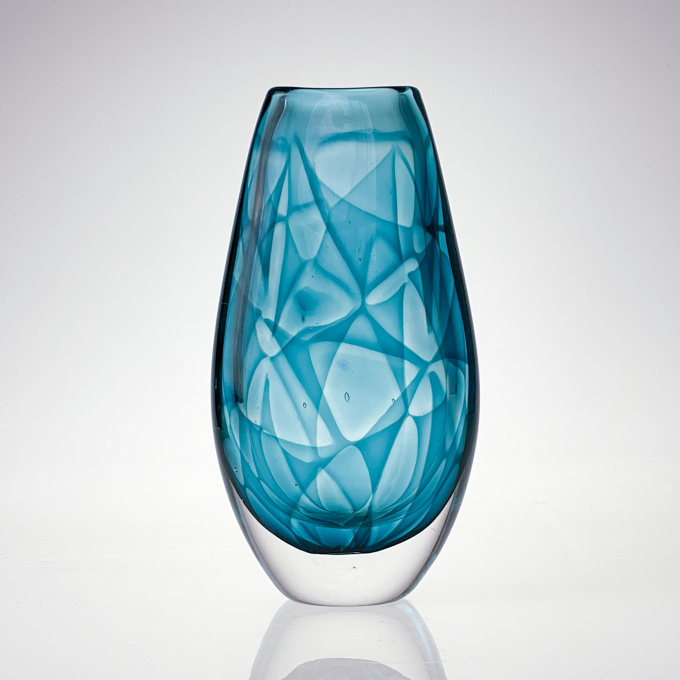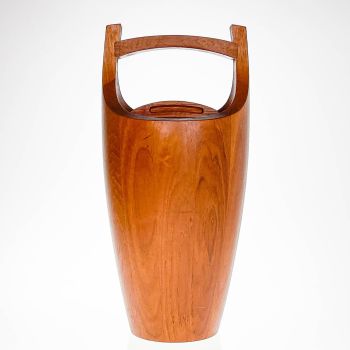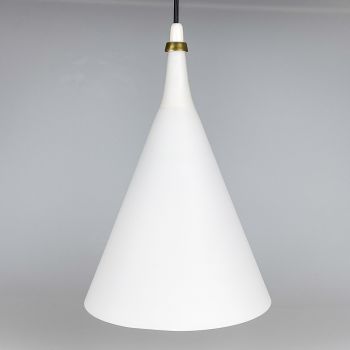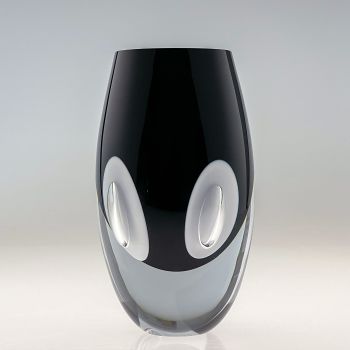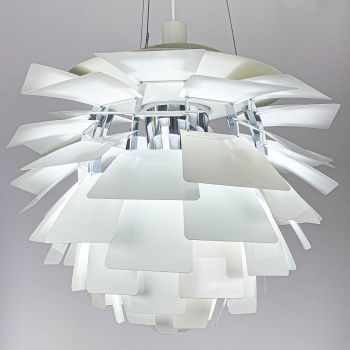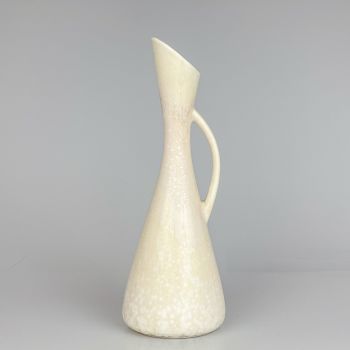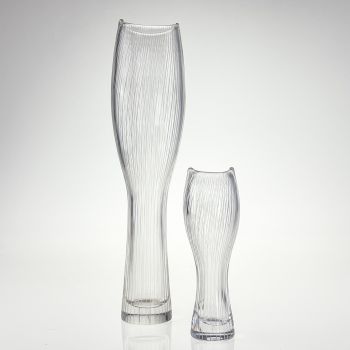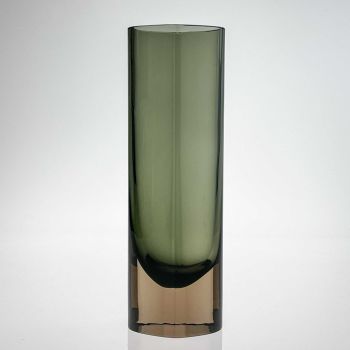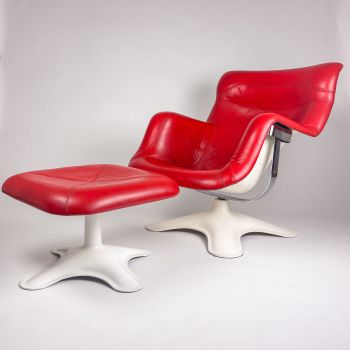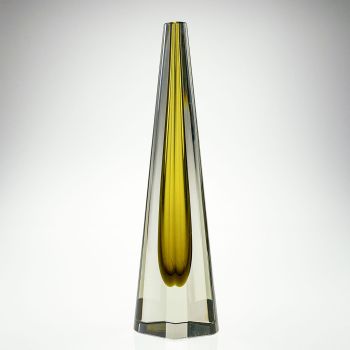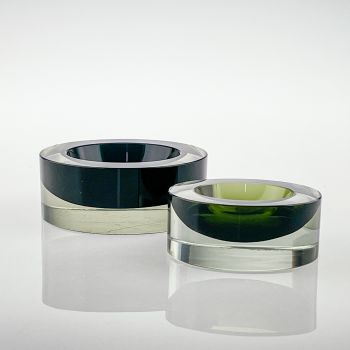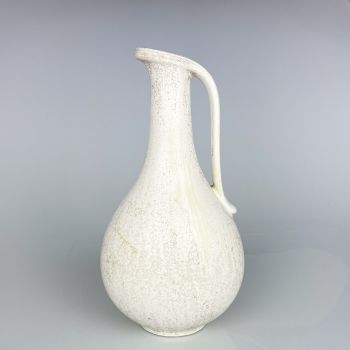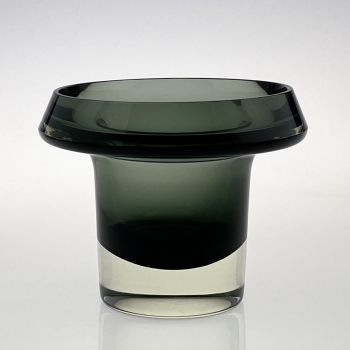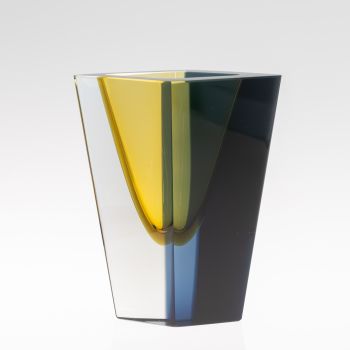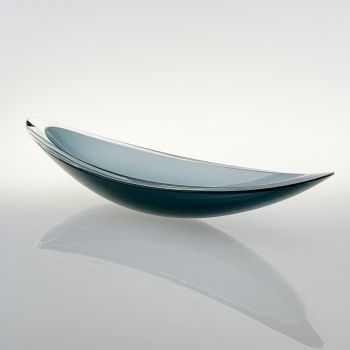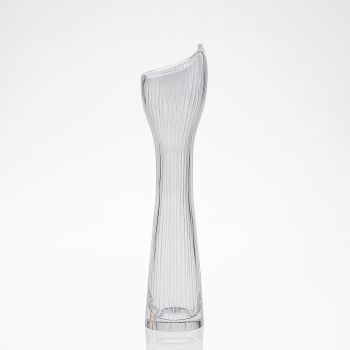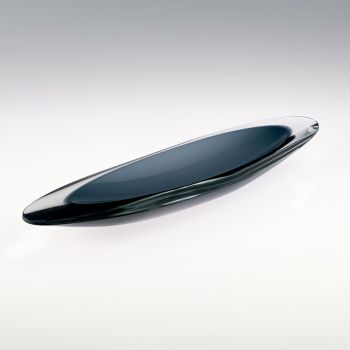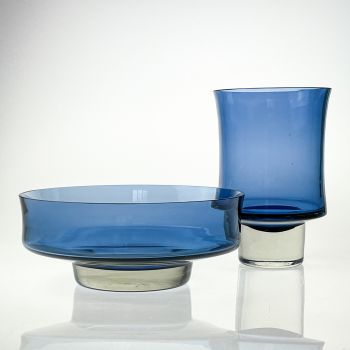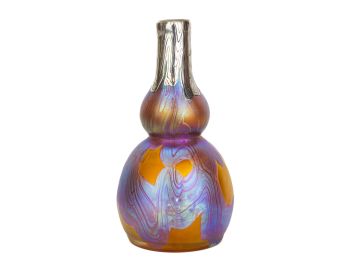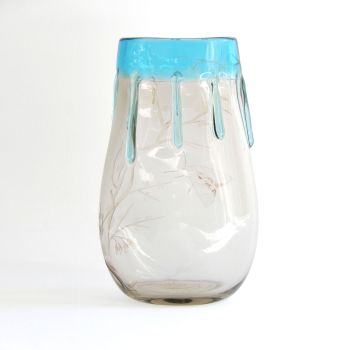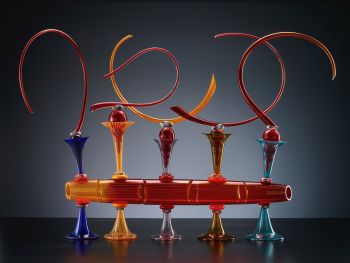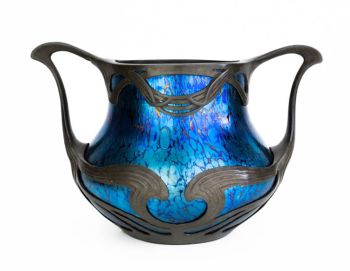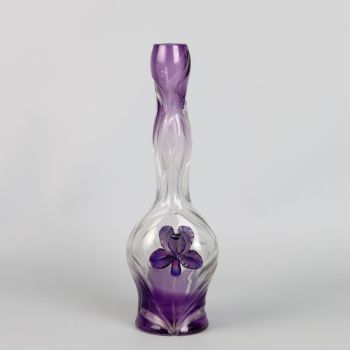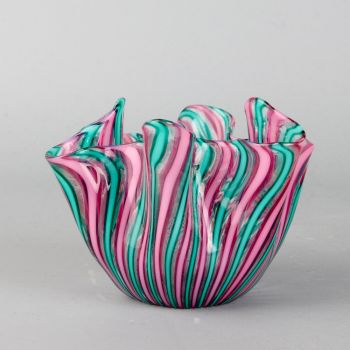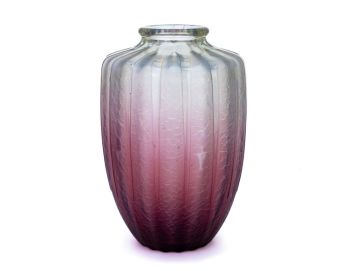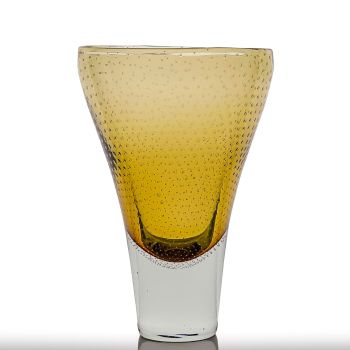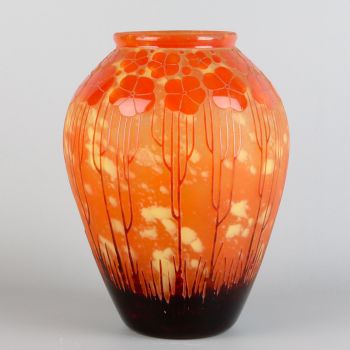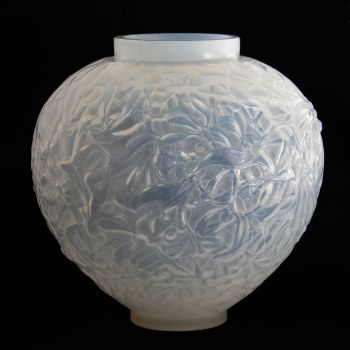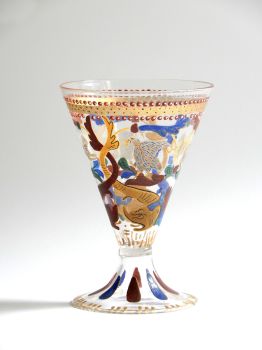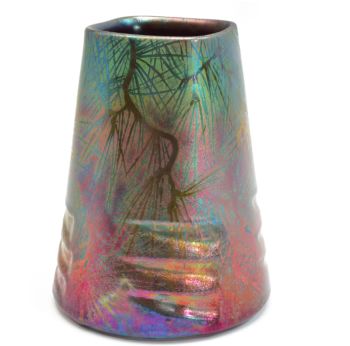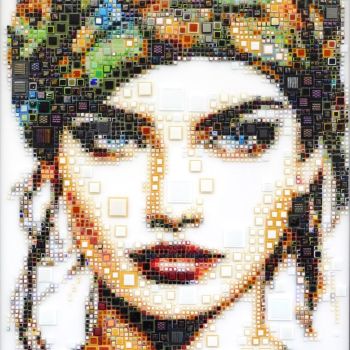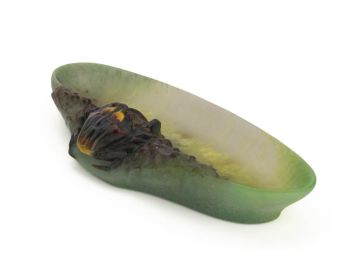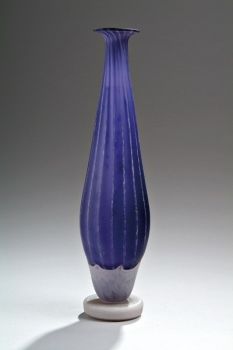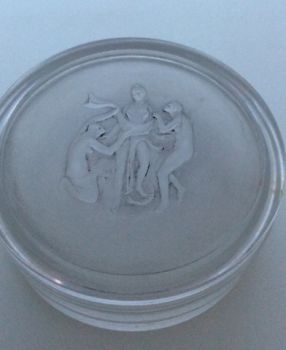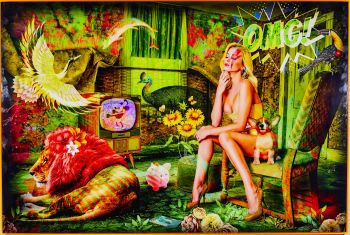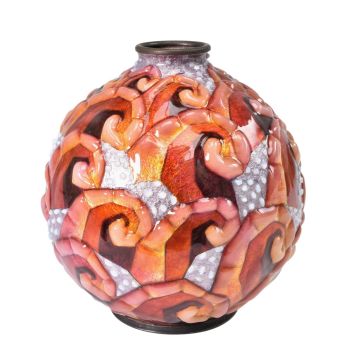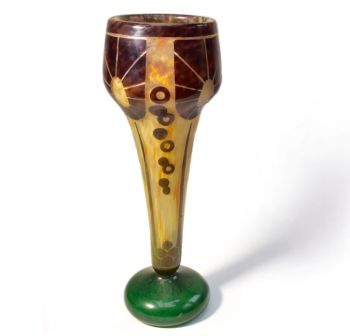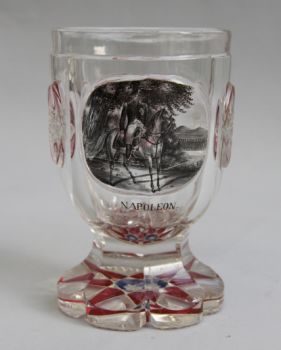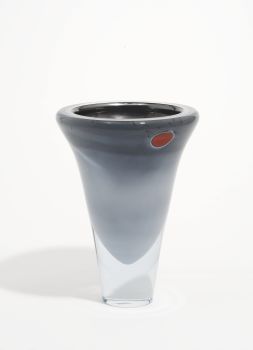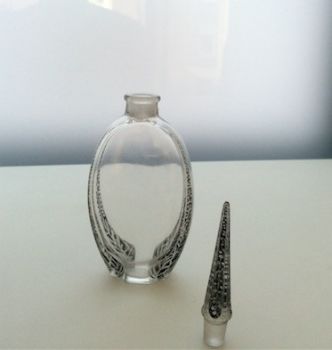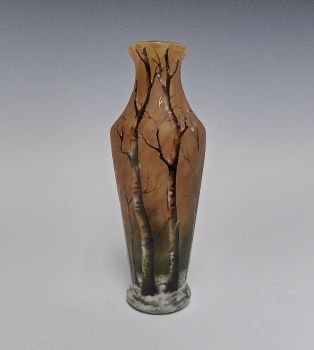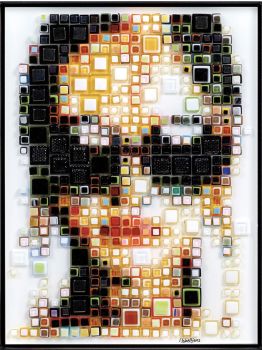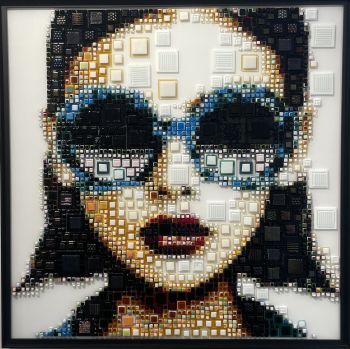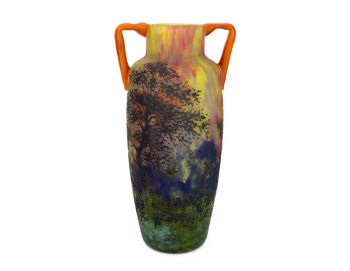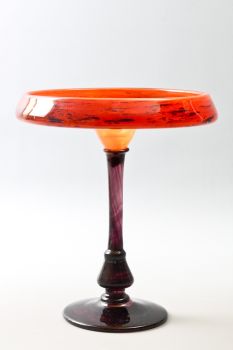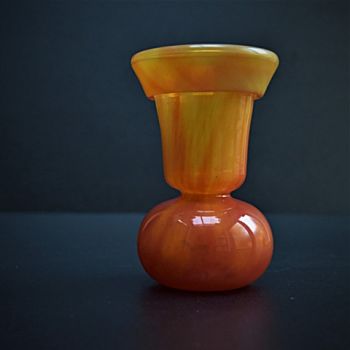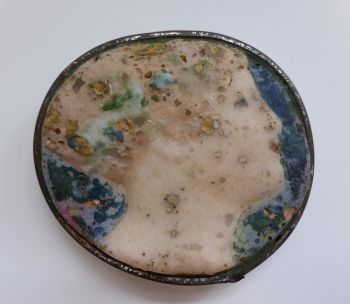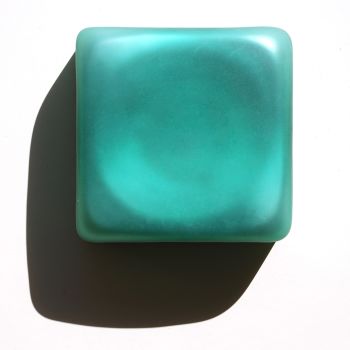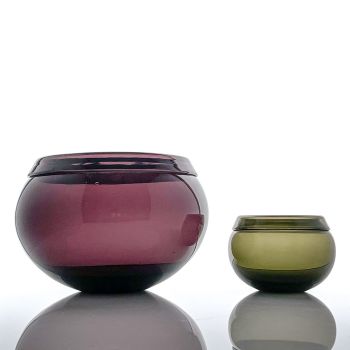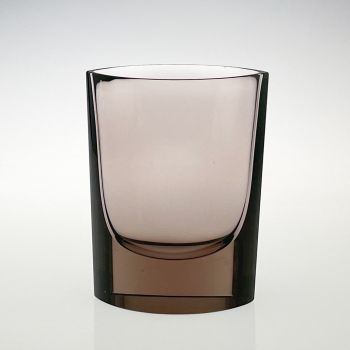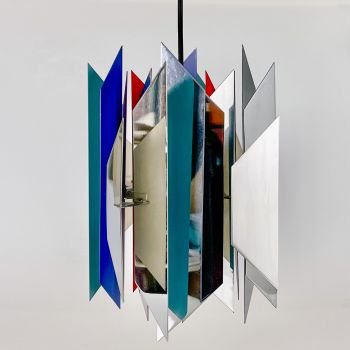Turquoise and clear glass art-object "Colora", model LH 1674 - Kosta Glasbruk, Sweden 1960's 1960 - 1969
Vicke Lindstrand
Vidrio
26 ⨯ 13 ⨯ 7 cm
ConditionVery good
Actualmente no disponible a través de Gallerease
Van Kerkhoff Art
- Sobre la obra de arteA free blown crystal art object / vase "Colora" with encapsulated turquoise-coloured geometric decoration, model LH 1674. Designed by Vicke Lindstrand and executed by the Swedish glass factory Kosta, presumably in the 1960s.
The "Colora" line consisted of two sizes. A large size, model LH 1674 and a smaller size LH 1673 and were designed the Vicke Lindstrand in the late 1950s.
This specimen is the largest model (LH 1674) in good vintage condition. It's either unsigned or the signature (etching) has become illegible. Hence the relatively low price for this very sought after piece.
About Vicke Lindstrand
Vicke (Viktor Emanuel) Lindstrand (Gotheborg, Sweden 1904 - Kosta, Sweden 1983) was a prominent Swedish glass designer and artist.
He received his education at the Technical School for Glass and Ceramics and went on to work as an artistic director at the Swedish glass company Orrefors. Throughout his career, Lindstrand developed a reputation as one of Sweden's most talented glass designers, known for his innovative use of traditional glassblowing techniques and his ability to create pieces that were both aesthetic and functional.
One of Lindstrand's most famous designs is the series of vases that he created for Orrefors in the 1930s. These vases are known for their simple yet elegant shapes, and their use of bright, vibrant colours. They were unlike anything that had been seen before in the glassware industry, and helped to establish Orrefors as a leader in the Scandinavian design movement. Lindstrand's work was highly sought after by collectors and design enthusiasts, and his pieces are still considered to be some of the most important examples of 20th-century Swedish glass design.
Throughout his career, Lindstrand received numerous awards and honors for his work. He was a member of the Royal Academy of Fine Arts in Sweden, and his work was exhibited in museums and galleries around the world.
Condition
This art-object is in good vintage condition, some minor scratches and wear consistent with age and use. No cracks or chips. A few airbubbles in the glassmass. For more information on the condition, please contact us and we can provide a condition report.
Literature
William L. Geary, Scandinavian glass p.58-60
Dimensions
H. 26,2 cm
W. 13,5 cm
D. 7,1 cm
Weight 3060 grams - Sobre el artista
Victor Emanuel Lindstrand , conocido como Vicke Lindstrand (27 de noviembre de 1904 en Gotemburgo - 7 de mayo de 1983 en Kosta) fue un diseñador de vidrio, diseñador textil y cerámico y pintor sueco. Se le considera un pionero del arte del vidrio sueco. Su trabajo fue parte de los concursos de arte en los Juegos Olímpicos de Verano de 1932 y los Juegos Olímpicos de Verano de 1936.
Cuando era niña, Lindstrand estaba interesada en dibujar. Había estudiado arte comercial y trabajado en ilustración comercial antes de comenzar su carrera en el fabricante de vidrio Orrefors en 1928. Fue pionero en diseños de vidrio artístico más atrevidos en Orrefors y, junto con Edvin Öhrström y Knut Bergqvist, inventó la técnica Ariel.
En 1950 se unió a Kosta Glasbruk como director artístico antes de jubilarse en 1973. En Kosta, fue el diseñador dominante y prestó su nombre a muchos diseños que ahora son clásicos. En este punto, Lindstrand comenzó a inyectar más y más color en sus creaciones, lo que resultó en diseños icónicos como Trees in the Fog y Autumn.
Pasó los últimos 10 años de su vida como artista independiente trabajando con Hanne Dreutler y Arthur Zirrnsack en Studio Glashyttan en Åhus.
Hizo su debut como diseñador en la Exposición Universal de Estocolmo en 1930, donde presentó doce jarrones de vidrio con decoración de esmalte en patrones exóticos. Por ello recibió gran atención de las publicaciones internacionales de diseño.
Lindstrand agregó nuevas dimensiones artísticas al ya famoso vidrio Orrefors con sus diseños únicos y la revitalización de formas y técnicas clásicas. Durante su tiempo en Orrefors, trabajó en vidrio grabado y jarrones Graal. Con el escultor Edvin Öhrström desarrolló la nueva técnica Ariel (nombrada por su esposa actriz Kristina).
Orrefors no podía permitirse el lujo de quedarse con Lindstrand durante la guerra y entre 1943 y 1950 se convirtió en líder creativo en Uppsala Ekeby, donde diseñó muchos objetos de gres diferentes, desde vasijas hasta esculturas figurativas.
¿Está interesado en comprar esta obra de arte?
Artwork details
Related artworks
- 1 - 4 / 24
Johann Loetz (Lötz) Witwe Klostermühle
Johann Loetz Witwe - Phänomen Genre 7773 – Orange1900 - 1910
Precio a consultarAntiques Emporium
Artista Desconocido
François-Théodore Legras – Tall “Fleurs de Pommier” apple blossoms vase1900 - 1909
Precio a consultarAntiques Emporium
Demetre Chiparus
Demetre H. Chiparus – Bronze Art Deco statue “Rapture” – Édition Etling, Paris1920 - 1929
Precio a consultarAntiques Emporium
Johann Loetz (Lötz) Witwe Klostermühle
Johann Loetz Witwe – Ausfuehrung 146 Titania vase – 19121910 - 1919
Precio a consultarAntiques Emporium
1 - 4 / 24Amalric Walter
Amalric Walter & Henri Bergé – Crabe plumier1920 - 1929
Precio a consultarAntiques Emporium
Frères Daum
Daum Nancy – “Paysage Soleil Couchant” vase with two applied handles1900 - 1910
Precio a consultarAntiques Emporium
1 - 4 / 24- 1 - 4 / 12

